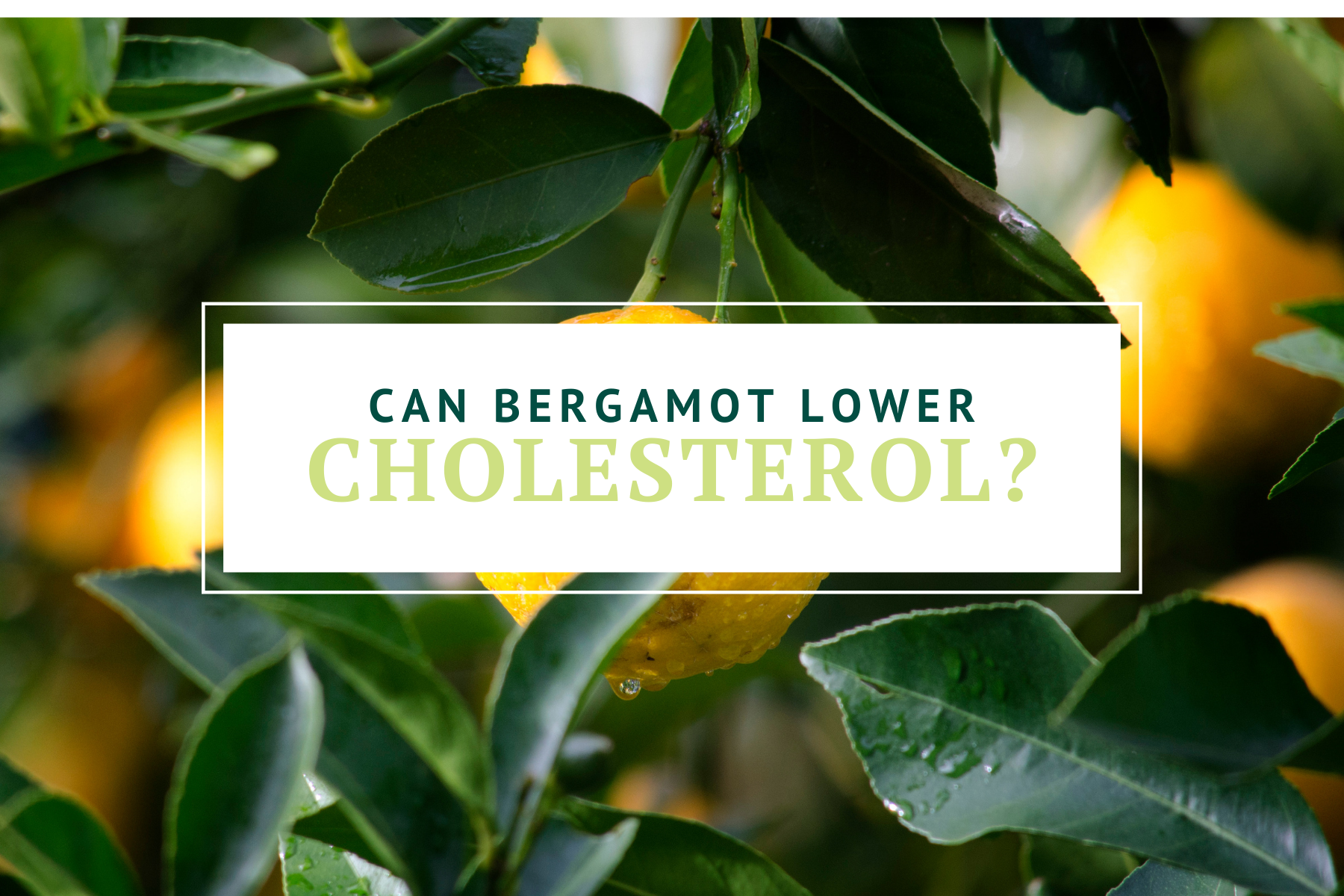Citrus bergamot (Citrus bergamia) is a polyphenol-rich citrus fruit studied for its potential to support healthy lipid profiles.
Several randomized, double-blind, placebo-controlled trials suggest standardized bergamot extracts can help maintain balanced cholesterol levels—particularly LDL-C—when used alongside diet and lifestyle improvements.
This article reviews the evidence, mechanisms, dosage, safety, and practical applications of bergamot in cholesterol management.
What Is Bergamot and Why Is It Being Studied?
Bergamot is a small, aromatic citrus fruit cultivated primarily in Calabria, Italy. Its peel and juice contain unique polyphenols—brutieridin and melitidin—along with flavanones such as neoeriocitrin, neohesperidin, and naringin. These compounds have been evaluated for their potential to support lipid metabolism and cardiovascular wellness.
Can Bergamot Lower Cholesterol?
What Clinical Studies Show:
Evidence from Human Trials
- 2019 Narrative Review: Nauman et al. summarized multiple clinical studies in which bergamot extract improved total cholesterol and LDL-C, with some trials showing modest increases in HDL-C. (Frontiers in Pharmacology, 2019)
- 2020 Systematic Review: Lamiquiz-Moneo et al. analyzed human data and concluded that bergamot supplementation generally produced favorable effects on lipid parameters, though product quality and dose varied. (Critical Reviews in Food Science and Nutrition, 2020)
- 2023 Randomized Controlled Trial: Fogacci et al. found that two standardized bergamot doses over 12 weeks significantly improved LDL-C and related lipid markers compared to placebo. (Archives of Medical Science, 2023)
- 2024 Double-Blind Study: Spina et al. reported that 150 mg/day of standardized bergamot flavonoids over four months significantly improved total cholesterol and LDL-C versus placebo. (Foods, 2024)
- Earlier Mechanistic Trials: Toth et al. (2016) observed approximately 20% LDL-C reduction and improved LDL particle profiles in adults with moderate hypercholesterolemia using bergamot extract for 30 days. (Frontiers in Pharmacology, 2016)
Across published human trials and reviews, standardized bergamot extracts have consistently demonstrated a capacity to support balanced cholesterol levels, particularly through LDL-C reduction. Effects are influenced by dose, duration, and extract quality.
Bergamot should be used as part of a broader lifestyle approach, not as a replacement for medical care.
How Citrus Bergamot Works: Mechanisms of Action
- HMG-CoA Reductase Mimicry: The polyphenols brutieridin and melitidin resemble natural substrates of the cholesterol-synthesizing enzyme HMG-CoA reductase, contributing to a statin-like effect on endogenous synthesis without acting as a pharmaceutical drug.
- AMPK Pathway Activation: Preclinical studies indicate that bergamot polyphenols may activate AMPK, a key metabolic regulator that enhances fatty acid oxidation and glucose metabolism.
- Antioxidant and Anti-Inflammatory Effects: Bergamot's flavonoids demonstrate strong antioxidant properties, which may help protect LDL particles from oxidation and support overall vascular integrity.
Effects on HDL, Triglycerides, and Ratios
Some trials report modest increases in HDL-C and reductions in triglycerides, leading to a more favorable LDL:HDL ratio. Results vary, but LDL-C and total cholesterol reductions remain the most consistent findings.
Dosing, Form, and Quality Considerations
- Form: Standardized bergamot polyphenolic fraction (BPF) or flavonoid-rich extracts in capsule form.
- Typical Doses Studied: 150–1,000 mg/day for 8–16 weeks.
- Quality: Look for third-party tested, standardized extracts with declared flavonoid content. Verify purity and sourcing transparency.
Safety and Interactions
Bergamot extracts are well tolerated in human studies. Mild gastrointestinal discomfort is the most common side effect. Because bergamot influences cholesterol metabolism, individuals using prescription lipid-lowering medications should consult their healthcare provider before use.
Integrating Bergamot into a Heart-Healthy Routine
Dietary and lifestyle changes remain the foundation for healthy cholesterol management. Bergamot can be viewed as an adjunct to the following evidence-based strategies:
- Increase soluble fiber intake: Oats, beans, barley, apples, and citrus pectin can help lower LDL-C.
- Follow a Mediterranean-style eating pattern: Emphasize vegetables, legumes, olive oil, and omega-3-rich fish.
- Exercise regularly: Aim for at least 150 minutes of moderate activity or 75 minutes of vigorous activity weekly.
- Manage stress and sleep: Chronic stress and poor sleep affect lipid metabolism and heart health.
Free Resource: Manage Your Cholesterol—Food & Habit Guide
Looking for practical, evidence-based strategies to improve your cholesterol naturally? Download our Manage Your Cholesterol Guide—a comprehensive resource featuring:
- Step-by-step guidance on optimizing diet, movement, and daily habits
- Heart-healthy recipes you can prepare in 30 minutes or less
- Tips for maintaining consistent progress and motivation
Enter your email below to receive your free copy instantly:
Key Takeaways on Citrus Bergamot
- Evidence-supported: Clinical trials show bergamot extracts can help maintain healthy LDL-C and total cholesterol levels when used with diet and lifestyle improvements.
- Mechanism: Bergamot's polyphenols appear to modulate cholesterol synthesis and improve oxidative balance.
- Best use: As part of a holistic heart-health plan, not as a substitute for prescribed therapy.
FAQs
Is bergamot the same as a statin?
No. Bergamot contains natural compounds that act on similar biochemical pathways but is not a drug. Do not stop or change any prescribed medication without medical supervision.
How long does it take to see results?
Clinical trials typically ran for 8–16 weeks. Your healthcare provider can recommend when to repeat cholesterol testing.
Can bergamot be taken alongside other supplements?
Bergamot may be used with other heart-supportive nutrients such as plant sterols, omega-3 fatty acids, or soluble fiber. Always consult your clinician for personalized guidance.
FDA & Healthcare Disclaimer
These statements have not been evaluated by the Food and Drug Administration. This product is not intended to diagnose, treat, cure, or prevent any disease. Information provided is for educational purposes only and should not replace advice from your physician or qualified healthcare professional.
References (APA)
(We prioritized peer-reviewed human trials and established medical organizations. Some studies investigated combination nutraceuticals; findings specific to bergamot are identified accordingly.)



